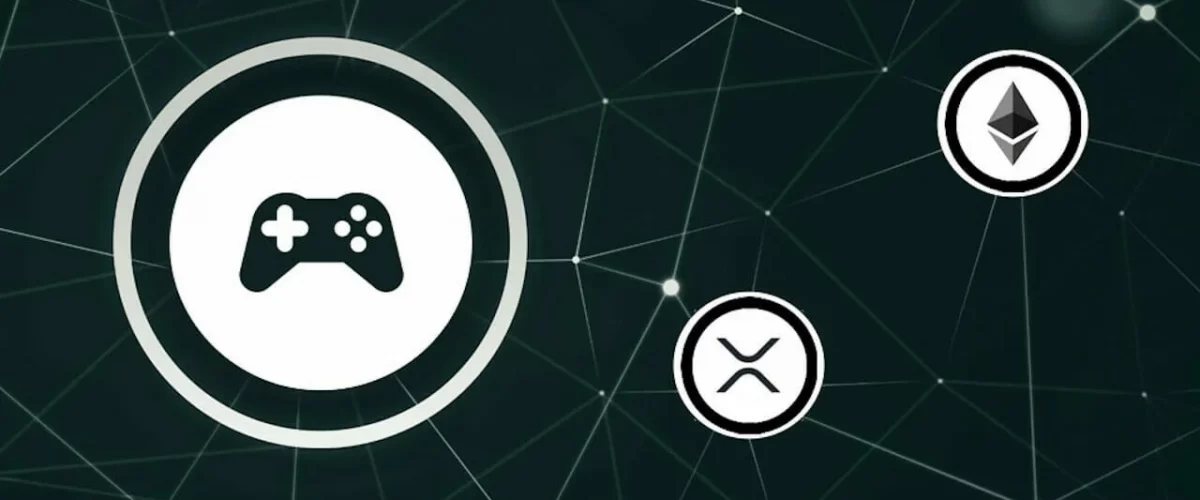
Blockchain technology has been making waves across various industries, and gaming and esports are no exception. The fusion of blockchain and gaming has opened up exciting possibilities, revolutionizing the way games are created, played, and monetized. With blockchain’s decentralized and transparent nature, it brings unprecedented opportunities for gamers, developers, and esports enthusiasts. This article explores the future of blockchain-based gaming and esports, delving into how this innovative technology is reshaping the gaming landscape and creating new avenues for immersive experiences, ownership, and economic empowerment.
Major Points Depicting the Future of Blockchain-based Gaming and Esports
- Enhanced Ownership and Digital Assets: Blockchain introduces the concept of non-fungible tokens (NFTs) that can represent unique in-game assets, such as characters, weapons, or virtual real estate. With blockchain, gamers can truly own these digital assets, trade them peer-to-peer, and even earn rewards for their achievements, empowering players and adding value to their gaming experiences.
- Decentralized Marketplaces: Blockchain enables the creation of decentralized marketplaces where players can freely buy, sell, and trade in-game assets. These marketplaces eliminate the need for intermediaries and provide a secure and transparent environment for transactions, fostering a vibrant economy within the gaming ecosystem.
- Transparent and Immutable Game Logic: By implementing smart contracts on the blockchain, the rules and mechanics of games can be programmed in a transparent and immutable manner. This ensures fairness and eliminates the possibility of cheating, creating a level playing field for gamers and enhancing the overall gaming experience.
- Play-to-Earn Opportunities: Blockchain-based gaming platforms can offer play-to-earn models, where players are rewarded with cryptocurrencies or tokens for their time and skills invested in the game. This opens up avenues for gamers to monetize their gaming prowess, creating new opportunities for income generation.
- Community-driven Development: Blockchain-based gaming platforms often involve the community in the decision-making process, allowing players to participate in the development and governance of the games they love. This community-driven approach fosters engagement, loyalty, and a sense of ownership among players.
- Cross-platform Compatibility: Blockchain-based games can leverage interoperability, allowing players to use their in-game assets across different games or even different gaming platforms. This interoperability expands the possibilities for gaming experiences and encourages collaboration among game developers.
- Esports and Competitive Gaming: Blockchain technology can bring transparency and trust to the competitive gaming scene. Smart contracts can be utilized for secure and verifiable tournament organization, transparent prize distribution, and anti-cheating measures, enhancing the integrity and credibility of esports competitions.
- Tokenized Fan Engagement: Blockchain-based platforms enable fans to engage directly with their favorite esports teams or players through tokenized ecosystems. Fans can support their idols by purchasing tokens, accessing exclusive content, participating in voting systems, and even sharing in the team’s financial success.
- Digital Identity and Personalization: Blockchain can provide gamers with unique digital identities and profiles that can be carried across various games and platforms. This allows for personalized gaming experiences, customization options, and social interactions within the gaming community.
- Integration of Virtual Reality and Augmented Reality: The combination of blockchain and immersive technologies like virtual reality (VR) and augmented reality (AR) opens up possibilities for more immersive and realistic gaming experiences. Blockchain can provide the underlying infrastructure for secure VR/AR transactions, ownership, and digital asset management.
Conclusion
In conclusion, the future of blockchain-based gaming and esports is incredibly promising and exciting. Blockchain technology has the potential to revolutionize the gaming industry by introducing new levels of ownership, transparency, and economic opportunities for players. With blockchain’s decentralized nature, gamers can truly own their in-game assets, trade them securely, and participate in decentralized marketplaces. Smart contracts ensure fairness and eliminate cheating, while play-to-earn models empower players to monetize their skills and time spent in games.
Furthermore, blockchain-based gaming platforms foster community-driven development, allowing players to actively participate in decision-making processes and governance. The integration of blockchain with esports brings transparency and trust to competitive gaming, ensuring fair tournament organization, transparent prize distribution, and anti-cheating measures. Tokenized ecosystems enable fans to engage directly with their favorite esports teams and players, creating a deeper level of interaction and support.
The future of blockchain-based gaming also opens up possibilities for cross-platform compatibility, personalized gaming experiences, and the integration of virtual reality and augmented reality. These advancements will provide gamers with more immersive and realistic experiences, enhancing the overall enjoyment of gameplay.
However, challenges such as scalability, user adoption, and regulatory considerations still need to be addressed for widespread implementation of blockchain-based gaming and esports. As the technology continues to evolve and mature, industry stakeholders, game developers, and gamers themselves need to collaborate to overcome these challenges and unlock the full potential of blockchain in gaming.
In summary, the future of blockchain-based gaming and esports is characterized by increased ownership, transparency, community engagement, and economic empowerment for players. By leveraging blockchain technology, the gaming industry is poised for a transformative shift that will redefine the way games are created, played, and monetized. It is an exciting time for gamers and esports enthusiasts as they embrace the opportunities and innovations that blockchain brings to the world of gaming.

Post a Comment